Food photographer Sérgio Coimbra, one of the most important professionals from gastronomic scene, reveals the secrets of the creative process behind his work.
Brazilian
reputed food photographer Sergio Coimbra became one of the most popular
professionals among chefs around the world for his authoral work and stunnig
food photos. His career started more than 10 years ago, with publicity photos,
food catalogs and food campaigns.
He
recently opened Satoyama, an exhibit about the cuisine of Japanese chef
Yoshihiro Narisawa to show the world the work he dedicated himself to for the
last three years. During this time, he made more than 14 trips to Japan to tour
the interior of the country alongside chef Narisawa in one of his longest
works. The exhibition is currently open to the public at Sao Paulo’s Japan
House until 12 November 2017.
Fine
Dining Lovers recently talked to Coimbra during the opening of the exhibit in
São Paulo. There, he talked about his work in partnership with renowed chefs,
such as Alex Atala, Quique Dacosta, Pierre Hermé and others, his discoveries
about Japan and revealed some secrets of his creative process behind his photos
(enjoy a selection of Sergio Coimbra's photos of famous chefs' dishes in the
gallery at the top of the page).
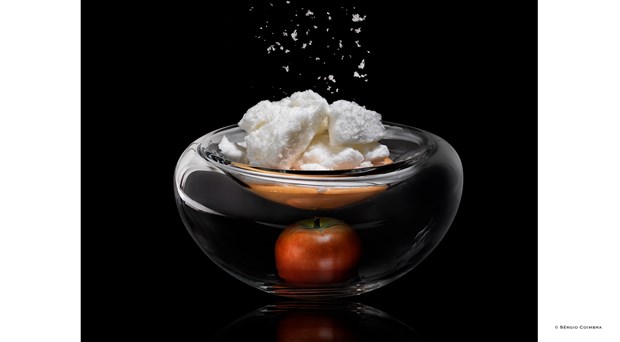
Quique Da Costa
Food as Art
“Of
course chefs are artists”, Coimbra states. “Food is art in the hands of these
professionals pushing the boundaries to a higher level by creating gorgeous
recipes, with a rich aesthetic care”, he adds. The Brazilian photographer
argues that since the first ever painted still life pictures we have learned to
see the artistic value of food, something that the chefs have tried to elevate
with increasingly sophisticated presentations. "Who could say the
opposite?", he asks.
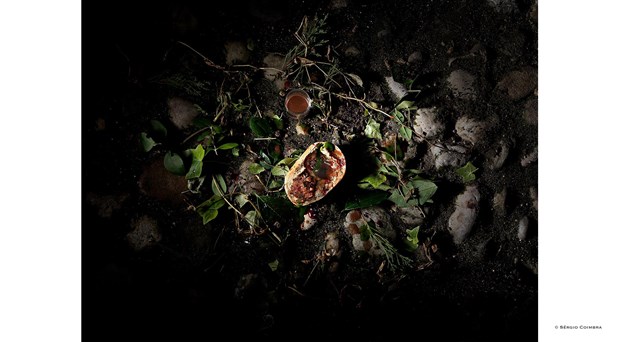
Massimo Bottura
The Chef and The Photographer
“I
try to give the chefs total freedom, to interfere as little as possible in
their work”, he explains. Coimbra says he is there with the camera in his hands
just to push the button and record what the chef has done. "Even if a chef
has already made a certain dish dozens of times, it never looks exactly like
the previous ones. My job is to look at that dish and take all the beauty I can
from it in color, textures...”, he says. His work, according to him, is a
co-creation, which starts with the chef and goes through his look. "Many
chefs, after seeing the photos ready, are impressed because I end up
highlighting something that they had not even realized, even creating the
dishes every day”, he points out.
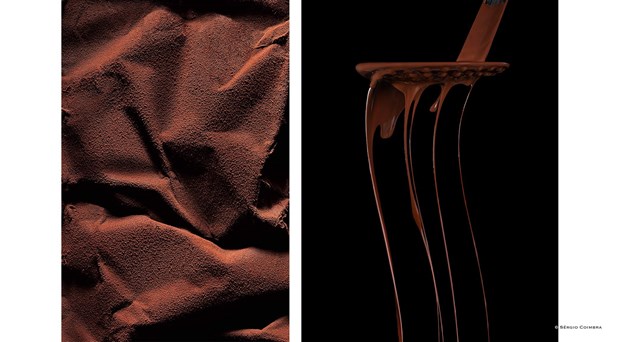
Pierre Hermé
'Homemade' pictures
Coimbra
says he prefer to make all the photos he can inside his studio, built specially
for this. Located in a 1000ft² building in São Paulo, this is the place where
magic happens. With hundreds of dishwear that he buys during his worldwide
trips (from delicate cups of chinese ceramics to modern plates by nordic
designers) that he maintains in warehouses with each piece catalogued – many of
them haven’t even been used yet, and might never be used – the place is
impressive.
Coimbra
also put together an entire team of carpenters to create exclusive backgrounds
and frames for his photos (he likes to recreate even external landscapes
inside) and built up a more-than-professional kitchen (better than many from
starred restaurants) where chefs can prepare their dishes to be photographed.
His team has more than 10 people working daily – and can get to more than 25
during photo shootings. All of this structure is available for the chefs, who
can peack whatever they want. “I never stick my oar in their job. My job only
starts when the chef assembles the dish as he wants. In the studio, I have the
possibility to take photos at different angles and with all kinds of lights.
There, I can control every detail of the photo. I created a space for that, and
you're better playing in your home ground”, he laughs.
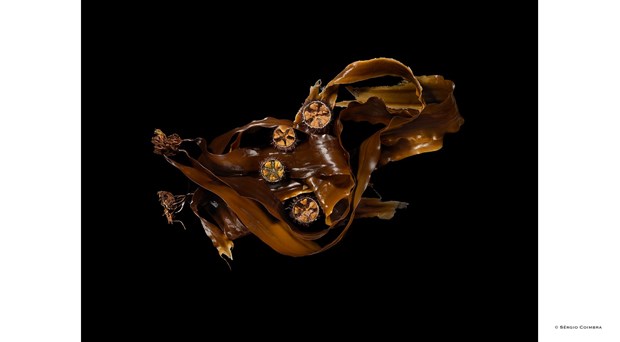
Yoshihiro Narisawa
Satoyama: A different
view of Japan
Coimbra
says this is one of the most important works he has done in his career, because
of the fact that he has left the kitchen and gone to nature, leaving behind all
the structure if his modern studio and all the equipments he usually carries
with him when he photographs starred dishes. "This was a very different
experience for me, not only because I had to take a more organic photography, in
a more documentary way, but mainly because I could be close to the producers,
to be able to trace all the ingredients before they get to the plate”, he
explains.
“I
have visited Japan on other occasions, and I was appalled by the country's
modernity. But in these last trips, I met a traditional, rural, rudimentary
Japan that I could have not imagined”, Coimbra points out. During the trips, he
and Narisawa traveled by train, by car, by plane and by boat in search of
suppliers. "I went to Japan in every season so we could register the
unique ingredients according to each one of them", he adds. Coimbra says
he was amazed with the care with food and with the fact that some ingredients
are so crafted.
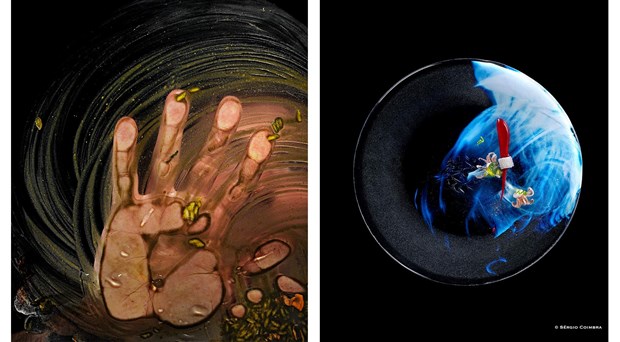
Massimiliano Alajmo | Alex Atala
All about Pierre
Hermé's Chocolate
Coimbra
tells Pierre Hermé called him after knowing his work and asked the photographer
to visit him in Paris next time he would be in the city. “I went and in our
fist conversation we had already created a working schedule”, he says. They are
co-authors of the book Chocolate, in which the renowned French pastry chef
displays his artistic mastery in this homage to chocolate through Coimbra’s
lenses. “Since the beginning, he let me do whatever I wanted. It was really
exciting because, besides the recipes, that are masterpieces themselves, I was
able to look for artistic and totally aesthetic ways of photographing one of
the most beloved ingredients in the world, with the support of one of its best
masters”.
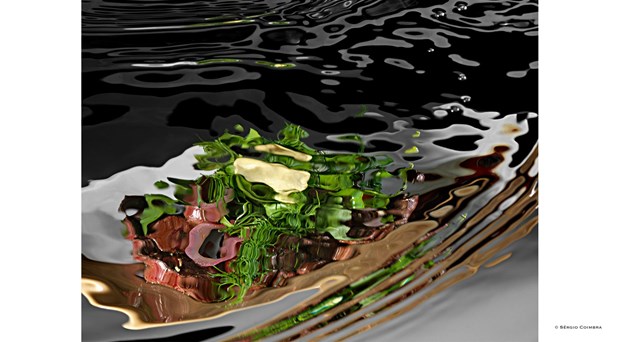
Massimiliano Alajmo.
By FDL